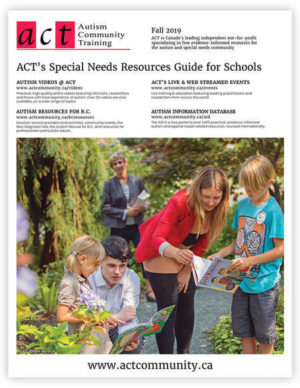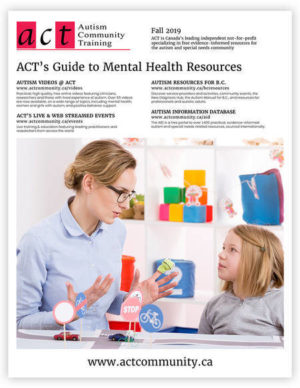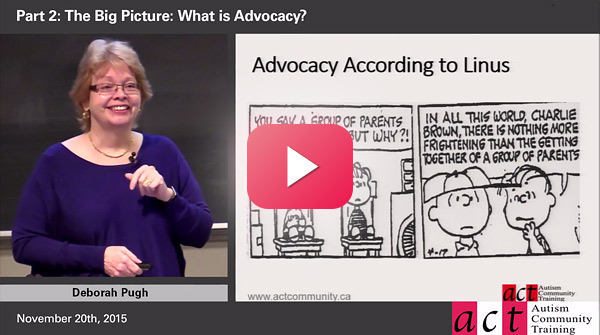New ACT Guides for Schools and on Mental Health
ACT has prepared a new set of guides to our free online resources, including Autism Videos @ ACT. These guides are organized to help educators, mental health professionals, and families to discover the many resources that ACT offers.
Visit the ACT Print Materials page to download these guides. ACT can mail copies to your school or organization upon request.
Special Needs Community Events
ACT’s Community Events listing highlights training and events provided by organizations across B.C. Below are a few of the upcoming events.
You are welcomed to submit your organization’s events.
September & October Events
Community Outreach Event at WE PLAY KIDS GYM
Saturday, September 21 12:30 pm – 2:30 pm , Surrey
Intuitive/Expressive Arts for Kids
Saturday, September 21 – Saturday, November 30 3:00 pm – 5:00 pm , Surrey
Mindfulness for Autistic Adults
Thursday, September 26 – Thursday, October 31, Online Workshop
TAGteach Workshop for Parents and Professionals
Saturday, September 28 – Sunday, September 29, North Vancouver
Sibshops
Sunday, September 29, Surrey
CONNECT with PEERS for Teens
Tuesday, October 1 – Tuesday, December 17 6:30 pm – 8:00 pm , Burnaby
Mindful Self Compassion (MSC) Course – 8 Week Training & Silent Retreat
Tuesday, October 15 – Tuesday, December 10 6:15 pm – 8:45 pm , Vancouver
Upcoming ACT Events
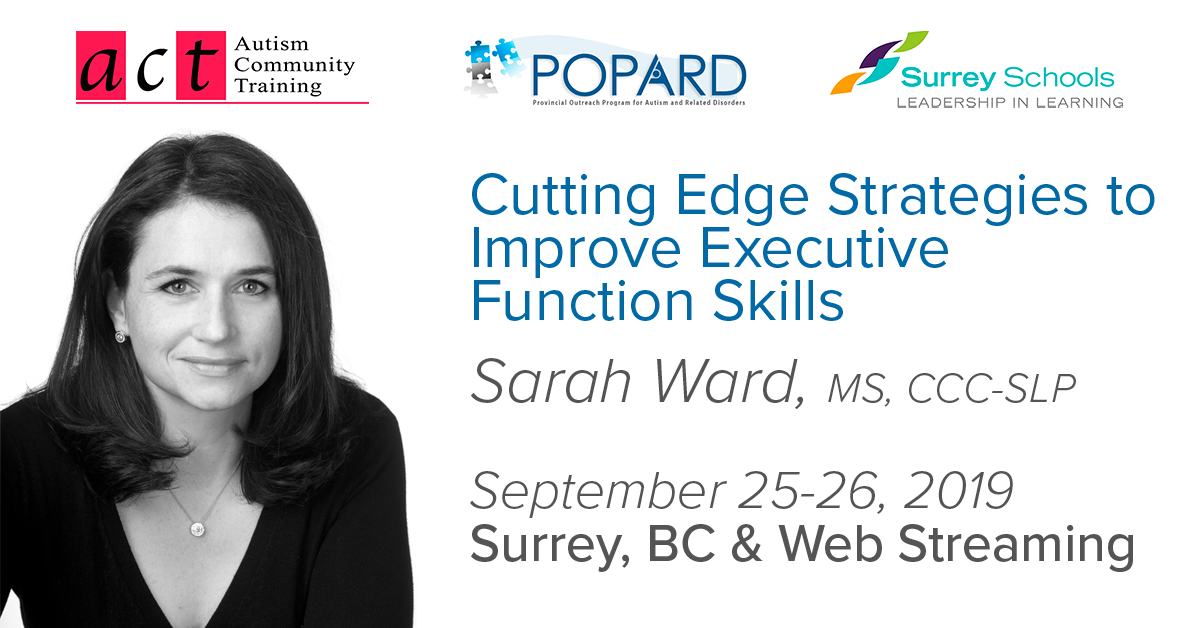
Starts next week! Web-streaming spots are still available. Details here.
Volunteers are needed for this event!
Volunteers receive complementary in-person registration and a certificate of attendance. Please email [email protected] to apply.
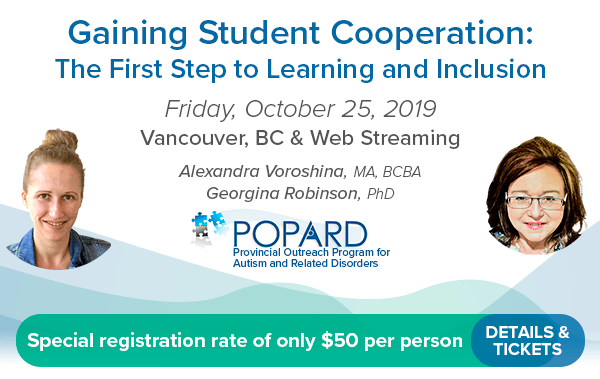
In this one-day presentation, Alexandra Voroshina will present an overview of POPARD’s Student Cooperation Training (SCT) Model. Details here.
Save the date: Upcoming ACT Events
November 15, 2019
Introduction to Navigating BC’s School System
A POPARD Presentation
November 22, 2019
Supporting Indigenous Families Affected by Autism through Engagement and Research
ACT’s 2019 Focus on Research Gathering
November 29, 2019
Behaviors and Mental Health – an Introduction for Families of Children with Special Needs
A POPARD Presentation
Participate in Autism Research
ACT believes that encouraging research is crucial to building knowledge of evidence-informed approaches to help individuals with autism and other conditions. We devote a page on ACT’s website to informing autistic adults and parents of children with ASD about university-affiliated projects which may be of interest.
Visit the Participate in Autism Research page to see all current research projects and project contact information.
Here are few projects which are recruiting volunteers:
- Virtual Mindfulness for Autistic Adults
- “Autism in Practice”: Establishing, Maintaining, and Understanding Friendship Among Adults Diagnosed with Autism in British Columbia
- How People with ASD Experience and Understand Online Gaming as a Communication Learning Platform: A Phenomenological Approach
Submit Your Research Project
Use our online form to submit your university-affiliated research projects related to the field of autism and special needs. It may take up to one week to post.
Autism in the News
ACT carefully sources insightful stories, ranging from research and government policy, to the world of entertainment, culture, and lifestyle.
Join ACT’s Facebook page for all the latest updates.
 The Ministry of Children and Family Development (MCFD) is developing a service framework to guide how it provides and funds Children and Youth with Special Needs programs and services for implementation in Spring 2020.
The Ministry of Children and Family Development (MCFD) is developing a service framework to guide how it provides and funds Children and Youth with Special Needs programs and services for implementation in Spring 2020.
Read the Summary of Engagement and Research Findings (PDF)
Details of the framework timeline are available on the MCFD’s website here.
Children with disabilities were excluded from B.C. schools more than 3,600 times last year: report – Global News
There’s no evidence caesarean sections cause autism or ADHD – The Conversation
Greta Thunberg is right: Autism is her superpower. Those who mock her should learn from her – Salon
Lawyer with autism finds her voice – ABA Journal
Artist with autism writes book to help others ‘get the help they need’ – BBC News
Father fuming, board investigating after autistic child sent home on bus with broken ankle – The Standard
“You’re Just Kooky”: Why Women With Autism Aren’t Taken Seriously – Yahoo News
Teen with autism upset after being transferred to a new school — without her knowledge – CBC News
Language expert teaches autistic child to communicate through pictures during long-haul flight – Independent
Autistic Vancouver boy gets to meet his Idol – Vancouver Sun
‘It can cause trauma’: Autism services group concerned after education minister lifts seclusion room ban – Edmonton Journal
Alberta lifts ban on seclusion rooms in schools – The Globe and Mail
After mother’s plea, kindergartner will go to school 5 days a week – CBC News
Autism was tough on this B.C. pair. This is how they’re making it easier for others – CBC News

